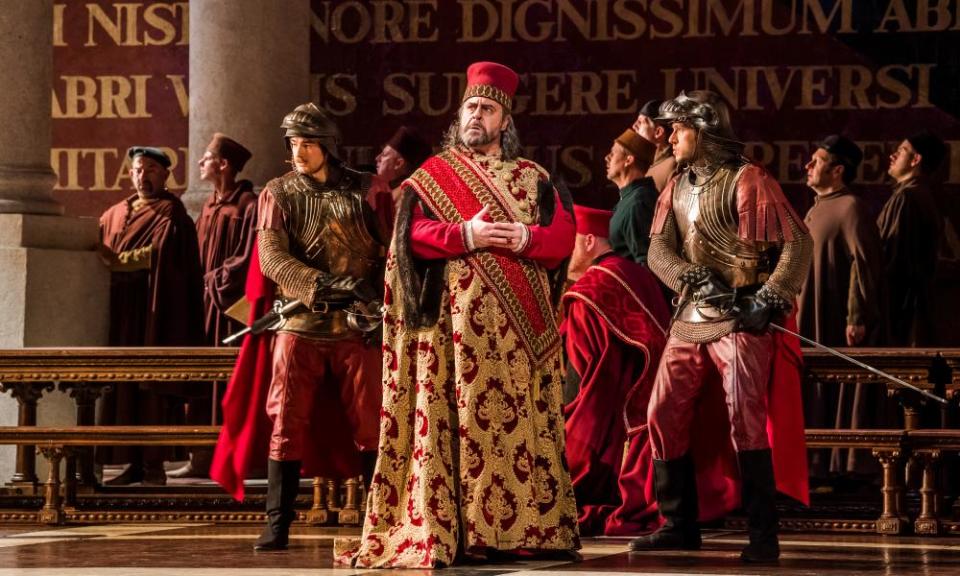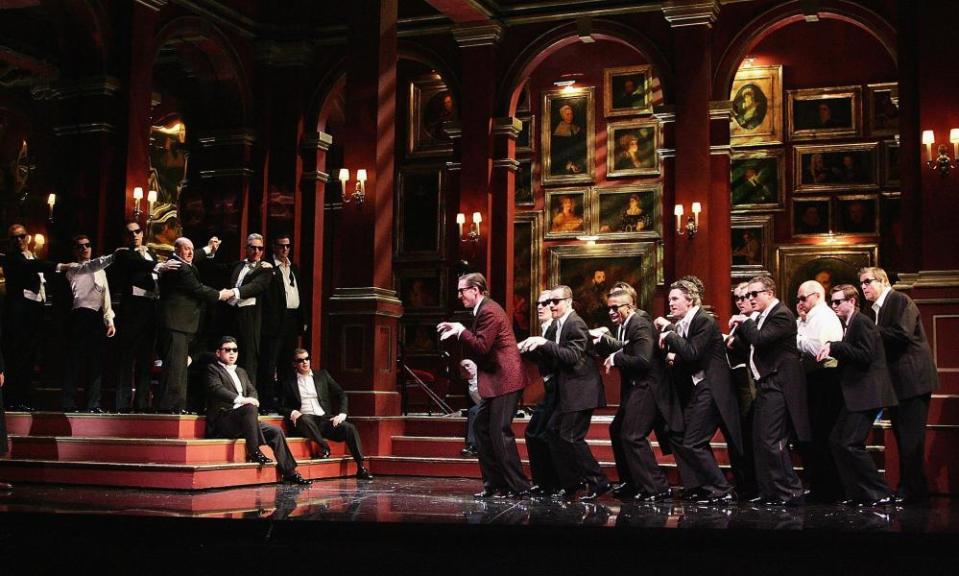Elijah Moshinsky obituary
The Australian opera director Elijah Moshinsky, who has died aged 75 from Covid-19 after suffering a fracture, took an avowedly traditionalist approach and was widely acclaimed for the acute psychological insights and theatricality of his productions. In the 1970s and 80s he was one of the most prominent directors working at the two London houses, inclining towards the modestly innovative school of Peter Hall, Jonathan Miller and Nicholas Hytner rather than the strongly interventionist one influenced by East Germans such as Harry Kupfer, Götz Friedrich and Joachim Herz that was beginning to make its presence felt.
He began directing as a student at Oxford University, where his production of As You Like It caught the eye of John Tooley, the general director of Covent Garden, who took him on as a staff producer. His first break came with a low-budget, stripped-down production of Britten’s Peter Grimes (1975), which was noted for Brechtian effects such as the steeply raked stage which both drew in the audience and menaced them. In a production that rejected picture postcard naturalism, the fishing community was evoked with minimal furniture and boats – though unusually, real fish were seen to change hands.
His production of Stravinsky’s The Rake’s Progress, also at Covent Garden (1979), similarly deployed Brechtian techniques, with characters stepping in and out of roles, but was strongly narrative, witty and introduced no extraneous elements. By the late 1980s he had developed into a fervent Verdian with a series of notable productions: Otello (1987), Attila (1990), Simon Boccanegra (1991), Stiffelio (1993) and Aida (1994), all for Covent Garden, and a Rigoletto for Australian Opera (as it was in 1991).
However, by then he had established the principles of a stylistic approach based on psychological motivation and fidelity to the human richness of Verdi’s operas. And it was at this time, too, that he issued what amounted to a manifesto entitled Verdi: A Pox on Postmodernism (1992), published in Opera magazine. The article was a robust rebuttal of what he described as the “postmodernist critical orthodoxy” that insisted on deconstructing the classics, engaging with ideological aspects of the canon by means of expressionistic devices and above all irony. While acknowledging that it was impossible to stage canonic operas with the “uncritical traditionalism that existed in the past”, Moshinsky was now in search of directness, clarity, truth and simplicity. He was against symbolic sets that drew attention to themselves, even now criticising the steeply raked stage with its distorting effect and calling for a “post-ironic” approach to opera production.
Born in Shanghai, Elijah was the son of Russian Jewish parents, Abraham Moshinsky and his wife, Eva (nee Krasavitsky), who had fled from Vladivostok. Growing up in Melbourne, he was very interested in history, in which he graduated and then taught at Melbourne University. In 1973 he won a scholarship to St Antony’s College, Oxford, where he studied the 19th-century Russian liberal Alexander Herzen with Isaiah Berlin and gained an MPhil.

In addition to his productions in London, he worked also with Welsh National Opera, Scottish Opera and the Buxton Festival. His international career included productions at the Metropolitan, New York, Opera Australia, and the Lyric Opera, Chicago, as well as opera houses in St Petersburg, Beijing and Seoul. The more traditional productions of his later career went down better at the Met than did his 1980 Ballo in Maschera, where the Brechtian distancing was not well received.
On the other hand, the dependence on theatrical effect rather than ideological engagement did not always survive the many revivals his productions enjoyed. The 2009 revival of his 1977 Lohengrin sharpened the conception somewhat with an orgy of relics and other pious paraphernalia – the stage was dominated by totemic poles, crucifixes and candles – suggesting that such fetishised objects could, like the “forbidden question” of the hero’s name and origin, be charged with taboo. But both this production and his Simon Boccanegra began to look superannuated and intellectually threadbare as they were revived over a period of several decades.

Notable at ENO were Moshinsky’s productions of Ligeti’s Le Grand Macabre (1982), The Mastersingers of Nuremberg (1984) and The Bartered Bride (1985). With the designer Timothy O’Brien, he set Le Grand Macabre on a slip road of the M4 motorway, where a young couple made love in a hearse. The dark humour came across well, though Ligeti himself felt the production lacked fantasy.
The Mastersingers once again used pictorialism as a springboard for the imagination: in this case, Dutch art of the 17th century (updating the action by a hundred years) created, in the words of the Times critic, “an atmosphere of cool, calm luminosity”. The Bartered Bride, designed by John Bury, for all its allusions to 19th-century art, with its giant sunflowers and rolling landscape, did attempt, and with some success, a social perspective.
Disagreements with the ENO management over casting led him to work increasingly in the West End, but also at the National Theatre and the RSC. Among his films for television were a series of Shakespeare productions in which, with the designer Michael Yeargan, he indulged his taste for pictorialism, with allusions to famous paintings. He also directed a film of Tippett’s The Midsummer Marriage (1984) for Channel 4.
In 1970 he married Ruth Dyttman. She survives him, along with their two sons, Benjamin and Jonathan, and his brothers Sam and Nathan.
• Elijah Moshinsky, opera and stage director, born 8 January 1946; died 14 January 2021

 Yahoo News
Yahoo News 
